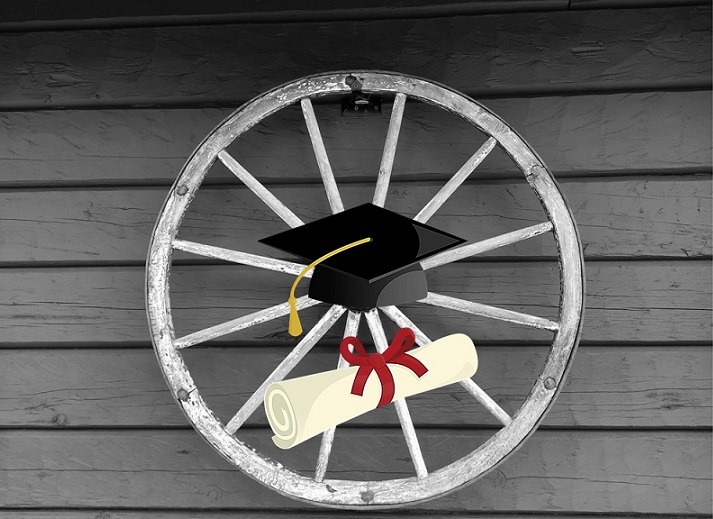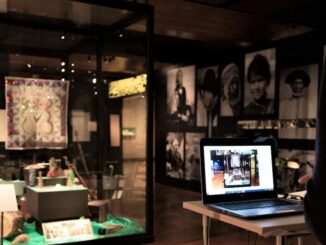
Many of the baros in the organizations and the “activists” keep telling us that Amare Chave need to go to school, finish school and go on to university to obtain degrees.
Why? So that we prove that we are as smart as the Gadje? We know we are and often smarter even.
The problem is that a degree does not guarantee work and the same is also true for a Gadje graduate but even more so for a Rom graduate. The Rom will always be considered last, whatever. Even if he or she happens to be better than the Gadjo.
Some try to make us believe that going to university and getting a degree will empower us and emancipate us. But that is far from true.
In most cases going to university costs money, and lots of it, which needs to be gotten first and if student loans can be had then they, as they are loans and not grants or bursaries, will have to be repaid leaving the graduate in debt for many years if not even many decades. Trades, on the other hand, make independent, also from such loans.
How many graduates, being unable to find work in the field they studied for, and for which they have obtained a degree, are forced to work in other fields, some flipping burgers at fast food outlets. A degree does not guarantee employment and income at the end, but may leave a debt burden.
Trades, and the mastery of those, as already said, make for independence and will enable the person who has one or more trades “under his belt” to set up his own business, starting small is always best, which could even lead to him teaching others the trade – taking on apprentices – and employing others.
He who has learned a trade and become at least a journeyman if not already a master in it can, after “graduating”, step out into the world with confidence that he will be able to work for himself to put food on the table and provide for his family. The university graduate, in whatever field, cannot be so confident, for he has to fight for his place in the labor market.
Trades, and the list of such trades is a long one, will always be in demand. Carpenters will always be needed, for instance, even if only to make coffins. But joking aside, the same goes for plumbers, electricians, bicycle-, motorcycle- and automobile mechanics, roofers, you name it. Even many of the traditional trades and crafts still can have a market today, though the marketing needs to improve.
A child who has learned a trade, or more than one, at the same time that he is receiving tuition in reading, writing, and other subjects, will by the age of twelve at least mastered one and if he goes to study at college or university or else he always has something to fall back on which can earn him a living should he not, immediately, or even ever, find employment in his degree subject.
Far too many college- and university graduates throughout the world do not ever manage to get a job in their chosen field. This means that they not only have wasted their time at those establishments but also, in many cases, a great deal of money in tuition fees and other costs which, often, takes them almost half a lifetime to repay, being in debt for a very long time. At the same time the world is crying out for tradespeople and engineers and in most cases such kind of works offers independence from the Gadje labor (slave) market.
He who has learned a trade, or more than one, on the other hand, more often than not, will immediately earn good money after “graduating”, something which is rarely the case for a university graduate, and even more so if he can operate independently, running his own business.
The biggest downfall for some of Amare venturing out into “proper” business is the fact that often they are not prepared to put in the long hours that are required to start with in order to make the business a success, regardless of what nature this business takes, but especially when it comes to the hospitality sector.
You cannot run a (successful) restaurant business, for instance, with opening hours of 1200 – 1900 Monday to Friday only. People want to visit a restaurant, especially one providing ethnic food, also and especially in the evening and on weekends. In a way that goes for other “shops” as well, in that one cannot just open for a few hours, say in the middle of the day, and stay closed on the weekend.
Trades come in all shapes and sizes, so to speak, from craft trades to engineering and everything in between. Some of them are best learned at a trade school while many are best learned at the feet of a master practitioner. But all leave one debt-free, generally, and able to earn a living right after completion, unlike whatever degree from a university. To obtain a university degree there are tuition fees, unless the university is free, which is rare nowadays, and on top of that come living costs, and more, during the stay at university or college, which are often not local.
Learning a trade, on the other hand, should not cost anything – in fact the trainee might even be paid, albeit very little – and the training place is generally comparatively local, often in the same village or town. Whether at completion of the training there is a “diploma” – which is desirable – or “just” the skills does not matter all that much. The important thing is that trades are in demand while many university degrees are actually not and we need to come to value trades again as they are essential to so many things in life.
Now, around Covid-19 and the possible demise of some universities in Britain (and this may not be uniquely for Britain) in the wake of it the talk in government, media and education circles now is shifting to whether everyone really should go to university as the jobs for graduates are not – necessarily – there at the end. In fact it is coming to the point saying that young people should be directed more towards trades than university, making, among others, the same arguments as I have been making in this piece.
The problem in Britain, unlike other countries, is the lack of proper apprenticeships in all kinds of trades, however, and trade schools are almost no longer in existence.
As far as we, the Romani People, are concerned such apprenticeships should be from masters from our own People and, maybe, there is also a need for our own trade schools.
2020 ©Michael Smith
Michael Smith i born in Britain to a Gitano father and a Rom Polska mother in 1960.
Due to the fact that my mother’s people were operating on the maternal line I consider myself a Rom Polska (which is to say Sinto) but then again that is neither here nor there. As far as I am concerned I am Romani and hence a brother to all that belong to our People. I won’t bore the readers with the rest as it is rather a long story.
He is self-educated and originally a forester by trade but also, from training received as a child a knife-maker and knife-grinder as well as a spoon carver. Involved in Romani politics, as an independent, more or less, for over 30+ years. Independent because too many of the (big) organizations and also advocates are only, it would appear, interested in feathering their own nests. Special concern the situation of the Romani children. Free-lance writer, journalist and Blogger, predominately on Romani issues.
Redaktionen
redaktionen@dikko.nu




